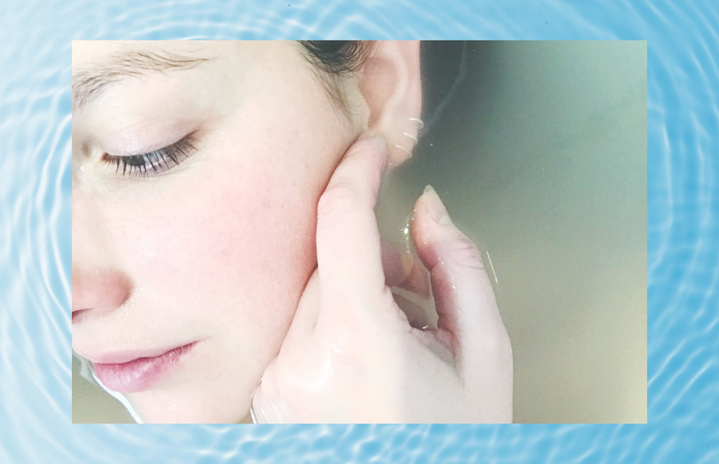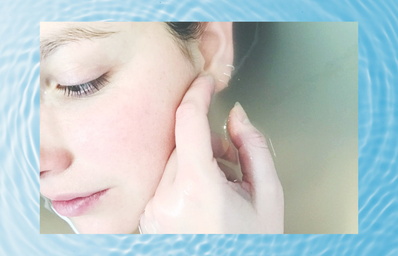Open TikTok and you will be flooded with videos of influencers and creators, giving you the best tips, tricks, and hacks for your skin. Skincare has exploded over the last two years: As we all were forced to slow down, some found comfort in skincare. Brands are also making a move towards cleaner beauty and the “clean girl” aesthetic. “Clean” can refer to more sustainable practices, from Lady Gaga rebranding Haus Labs to become eco-friendly, to Fenty Skin making their bottles reusable and recyclable, or to an emphasis on “cleanliness” of the complexion. But while clean beauty in the production sense can be good for the environment, clean beauty’s ideal of blemish-free skin isn’t as good for our self-image and mental health.
When clean skin trends emerge, like “glass skin” or “dolphin skin,” they typically feature glass-like, clear, pore-free, and texture-free skin, which is impossible for most consumers to achieve 100%. Gen Z struggles perhaps more than any generation with body image due to social media — with filters, photoshop, and airbrushing, almost everyone looks like a porcelain doll with perfect skin, which isn’t the truth. According to BBC News, 45% of British beauty company Cult Beauty’s community said they would feel uncomfortable uploading an unfiltered image of their skin to social media.
Clean skin thrives on the idea of exclusivity, almost like a “Clean Girls” club. Influencers and brands target imperfections and label them as “flaws,” preying on insecurities to help boost sales. This emphasis on rooting out imperfections became even more prevalent in the last couple of years: According to Forbes, photo editing apps such as Facetune saw a 20% increase in usage at the start of the pandemic.
The “clean girl” aesthetic has warped social media users into disliking natural bodily functions, such as acne or redness. When TikTok influencer Eva Rankin posted her video on “how to achieve the clean look” in September 2021, the comments were flooded with comments pointing out the unattainable nature of her skin. “step 1: have clear skin,” said one user. “step 1: don’t have a single blemish, not even one,” said another.
The idea of anything “clean,” especially in beauty and fashion, also has roots in classism. Seemingly pore-free, acne-free skin and plucked brows contribute to the aesthetic of “rich.” How do you get clean skin? Oh, just buy these 10 expensive products you can’t afford and never work up a sweat.
Classicism and elitism go hand in hand with pretty privilege, or the luxuries afforded to attractive people (“attractive” often intersects with the limiting Western beauty ideal of thin, cis, white, and wealthy-looking — aka “clean”). Influencers and brands exacerbate this sense of exclusivity, and their advertising has an undercurrent of “Buy this product to look and feel like me and fit into this stereotype. If you don’t, you’re poor and dirty.”
“Guys where do y’all get your nice gold jewelry from ? And I want to look rich,” commented one Tiktok user on Rankin’s video. The clean beauty trend has even coined phrases such as “pores are for the poor,” referring to Kim Kardashian’s ability to always appear pore-free in photos.
As a Black woman, I struggle with hyperpigmentation and dark spots. I have tried numerous amounts of Vitamin C serums and niacinamide. Yet I always struggle with the perception that while the rest of my skin seems “perfect” and “clean,” those dark spots are something to be ashamed of, which is not the truth and not cool. Research has shown that skin can be tricky, and while your skincare routine can be perfectly fine, each person’s skin is unique and has a different version of healthy. According to the University of Washington, healthy skin is defined as “smooth, with no breaks in the surface. It is warm (not hot or red) and neither dry and flaky nor moist and wrinkled. Healthy skin is a mirror of a healthy body.”
So while my skin and body are at their best functioning point, I still struggle with dark spots and occasional acne, and that is completely okay. Clean skin does not equate to poreless, clear, or shiny — it refers to healthy, happy skin.


